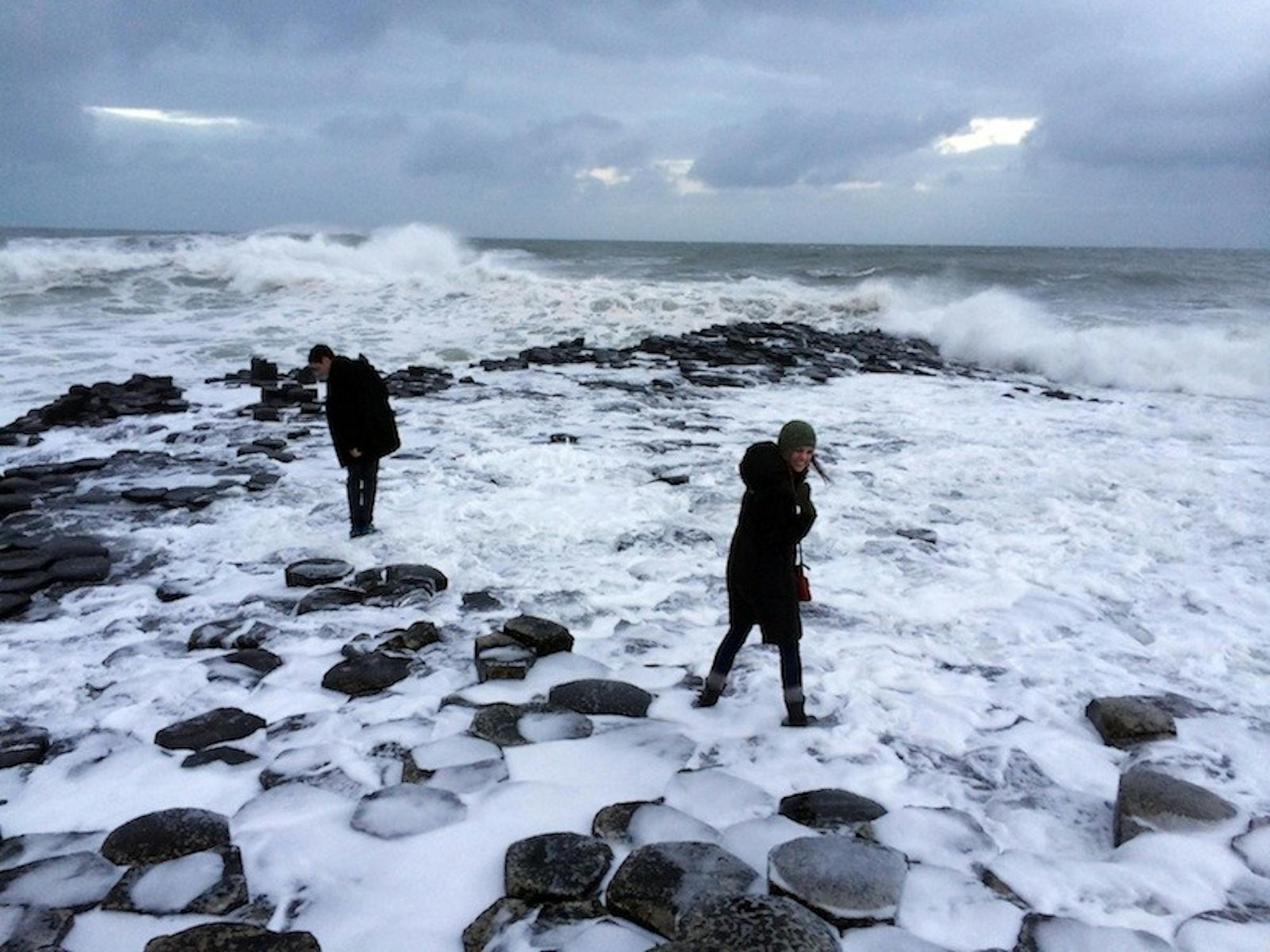As Public Policy 85 students discussed Northern Ireland’s peace treaties of 1998 in Belfast’s parliamentary buildings, British Prime Minister David Cameron discussed an addendum to the very same treaties next door. This coincidence demonstrated the continued relevance of the class’s studies, program participant Nick Zehner ’15 said. Economics and public policy professor Charles Wheelan ’88 led a group of 12 students to Northern Ireland over the winter interim period to study public policy in action. This is the second such trip led by Wheelan, who brought his Public Policy 85 class to India following the fall 2013 term.
The class met with notable players in public policy, including former Irish Prime Minister Bertie Ahern and Jonathan Powell, a key British negotiator in the peace agreements, he said. Wheelan said that these meetings provided direct contact with those who were most involved with policymaking at the time.
“It was really memorable to be able to meet someone who had been so involved in the peace talks and get his take on it,” Ayesha Dholakia ’15 said.
Other important figures included ex-prisoners on both sides of the conflict, many of whom had been incarcerated for violent crimes, Wheelan said.
“The kind of perspectives we heard in Ireland would be unobtainable in Hanover — from the former prime minister to the political editor of The Economist, James Astill,” Zehner said.
He said that the diversity of the speakers clarified conflicting narratives and was a crucial part of the experience.
Wheelan said that he chooses the location based on the safety and relevance of a specific policy question. This class investigated Northern Ireland’s peace treaties of 1998, the lessons learned from those treaties and the subsequent progress made in the country, he said.
The selected country must also have connections to Dartmouth and the Rockefeller Center, Wheelan said.
He said that over fall term the class studied the history of Ireland, Northern Ireland and the nature of the conflict between Irish Protestants and Catholics with a focus on “competing narratives.”
“As with many sectarian conflicts, the history is crucial,” Wheelan said. “You have to know not only the history as we look at it in the West but the history as it’s perceived by the different parties involved.”
Wheelan said the class examined conflict resolution through literature and case studies, including some from other countries such as Cyprus and Colombia.
The trip began in London and continued on to Dublin and Belfast, Wheelan said.
Wheelan said that though peace between Irish Catholics and Protestants technically exists, the two societies are still just as separate as they were 15 years ago.
“When we got to Belfast and we were walking around the streets we saw flags hanging all over the city and were able to see tangible evidence of the conflict,” Dholakia said.
More physical borders exist now than at the time of the peace agreement in 1998, Wheelan said.
“There are still very many walls, akin to the Berlin Wall, that separate Protestants and Catholics in Northern Ireland,” Wheelan said. “Something like 50 walls ironically called ‘peace walls’— cement on the base, barbed wire on top.”
The trip culminated with a collaborative memorandum written by the students, Wheelan said. He said that the memo, which totaled 67 pages, covered the lessons learned from Northern Ireland and how those lessons can be applied to other sectarian conflicts.
The class had to be “sensitive” to the recent nature of events and investigate all sides of the conflict, Dholakia said.
“In order to write our memo, the most challenging part was to make sure that we encapsulated all those different perspectives and project as objective a standpoint as possible,” Dholakia said. “It’s a really heated issue in the country even today.”
The process of writing the memo was very involved and exhausting at times, Zehner said. The memo identified factors that could apply to other ongoing conflicts, determined the players in the conflict, how to reach agreements and the degree of reconciliation in Northern Ireland today. Zehner noted that peace in Northern Ireland is very much an ongoing process.
Dholakia said that the collaborative process of writing a coherent, effective memo with the group improved her leadership, communication and critical thinking skills, as well as those of the group as a whole.
Wheelan said that he hopes the program will continue into the future as it offers an “incredible learning experience.” “I watched the students grasp the material with such depth and with such interest,” Wheelan said. “It’s really unlike any experience you can have on campus in just 10 weeks.”
The format of the class would remain the same in the future with summer readings, in-depth research of the policy issues during the fall term, meetings with prominent policy makers during the trip itself and a final group memo, he said.
Potential future trips include studying economic policy in Liberia or conflict resolution in Middle East, Wheelan said. The class would most likely focus on a smaller topic such as the role of the United States in the Israeli-Palestinian conflict rather than the overall situation in the Middle East, he said.




